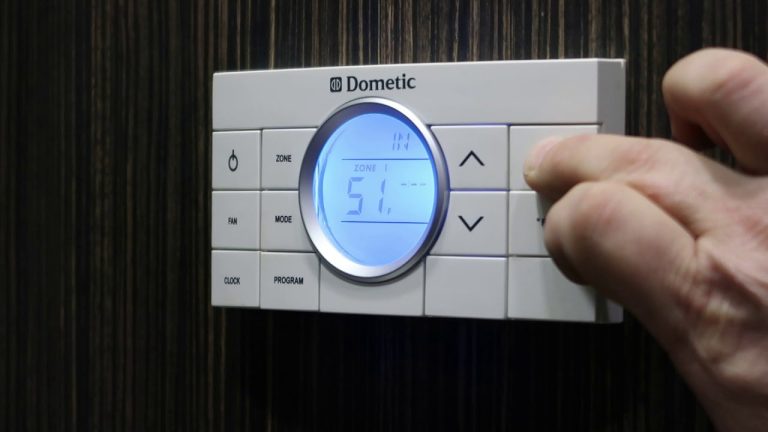Can Air Conditioners Leak Freon? Find Out Why And How To Prevent It
Yes, air conditioners can leak Freon (also known as refrigerant). Freon is the substance responsible for cooling the air in an air conditioner. If there is a leak in the system, the Freon can escape, leading to reduced cooling performance. It is important to address any leaks promptly to avoid further damage to the air conditioner.
Air conditioning is a luxury that many of us rely on to escape the scorching heat of summer. It’s a modern convenience that keeps our homes cool and comfortable.
But what happens when that cool breeze turns into a problem? Specifically, when your air conditioner starts leaking freon. For homeowners and individuals who depend on air conditioning systems, this is an issue that can’t be ignored.
Freon, also known as refrigerant, is a vital component of your AC unit, responsible for cooling the air that circulates throughout your home. But when a leak occurs, it not only compromises the efficiency of your system but also poses potential health and environmental risks. In this blog article, we will delve into the world of air conditioner freon leaks.
We will explore the signs and symptoms to look out for, understand the implications for both your health and the environment, and discover effective ways to address this issue head-on. Whether you have a basic understanding of air conditioning systems or consider yourself an expert, this article will provide valuable insights and practical knowledge to help you maintain and troubleshoot your AC unit. We will equip you with the information you need to identify freon leaks, understand their impact, and take appropriate action to ensure the optimal performance of your air conditioning system.
Understanding Freon and Its Role in Air Conditioning Systems
Before diving into the topic of air conditioner freon leaks, it’s crucial to have a clear understanding of what freon is and its essential role in air conditioning systems.
Freon, also known as refrigerant, is a chemical compound that enables the cooling process in air conditioners. It absorbs heat from the indoor air and releases it outside, resulting in the desired cooling effect.
There are several types of freon used in air conditioning systems, with the most common being hydrochlorofluorocarbons (HCFCs) and hydrofluorocarbons (HFCs). While HCFCs contribute to the depletion of the ozone layer, HFCs have replaced them as a more environmentally friendly alternative.
When an air conditioner is functioning optimally, freon remains contained within the system and undergoes a continuous cycle of evaporation and condensation to cool the air. However, issues can arise when a freon leak occurs.
The Signs and Symptoms of an Air Conditioner Freon Leak
Identifying a freon leak in your air conditioning system is crucial for prompt detection and resolution. Look out for the following signs and symptoms that may indicate a freon leak:
- Diminished Cooling Performance: If you notice that your air conditioner is no longer cooling your home as effectively as it used to, a freon leak could be the culprit. The reduced levels of freon result in compromised cooling efficiency.
- Icy Build-up on the Evaporator Coil: A freon leak can cause the evaporator coil to freeze, leading to an accumulation of ice on the coil. This can restrict airflow and hinder the cooling process.
- Hissing or Bubbling Sounds: If you hear unusual hissing or bubbling sounds coming from your air conditioning unit, it could indicate a freon leak. These sounds are caused by the escaping freon as it leaks from the system.
It’s important to note that detecting a freon leak may require professional assistance. HVAC technicians have the necessary tools and expertise to identify and fix leaks accurately.
The Implications of Air Conditioner Freon Leaks
While a freon leak may initially seem like a minor inconvenience, it can have more significant implications for both your health and the environment. It’s crucial to understand the potential consequences of ignoring or neglecting a freon leak:
Health Risks
Exposure to freon can have adverse health effects, particularly if inhaled or ingested. Some potential health risks associated with freon leaks include:
- Irritation: Freon can cause irritation to the eyes, skin, and respiratory system. It may lead to symptoms such as coughing, sneezing, shortness of breath, and itchy or watery eyes.
- Dizziness and Headaches: Inhaling freon can result in dizziness and headaches. Prolonged exposure to high levels of freon can lead to more severe symptoms.
- Nausea and Vomiting: Extended exposure to freon may cause nausea and vomiting, indicating more significant health risks.
Environmental Impact
Freon is classified as a greenhouse gas, contributing to global warming and climate change. When released into the environment, it can remain for an extended period, depleting the ozone layer and exacerbating the greenhouse effect.
Proper disposal and handling of freon are essential to minimize its impact on the environment. This includes repairing leaks promptly, recycling or safely disposing of old air conditioning units, and using eco-friendly alternatives.
Addressing Air Conditioner Freon Leaks
Dealing with a freon leak requires a systematic approach to ensure the safety of both individuals and the environment. Here are some effective ways to address air conditioner freon leaks:
Hiring a Professional HVAC Technician
The most reliable and recommended solution for addressing freon leaks is to hire a professional HVAC technician. These experts have the knowledge, experience, and equipment to identify and repair leaks accurately.
When hiring an HVAC technician, look for certified professionals who specialize in air conditioning systems. They can perform comprehensive inspections, detect leaks, and offer appropriate solutions.
Regular Maintenance and Inspections
Prevention is always better than cure. Regular maintenance and inspections of your air conditioning system can help identify and address potential freon leaks before they become major problems.
Schedule routine maintenance checks with a qualified technician to ensure that your system is in good working condition. This includes checking for leaks, replacing filters, cleaning coils, and optimizing overall performance.
Upgrading to Environmentally Friendly Air Conditioning Systems
If you have an older air conditioning system that uses outdated, ozone-depleting freon, consider upgrading to a more environmentally friendly alternative.
Newer air conditioning systems use HFCs, which have a significantly reduced impact on the environment. By upgrading, you not only enhance the energy efficiency of your home but also contribute to a greener future.
In Conclusion
Air conditioner freon leaks are a serious issue that should not be ignored. They can affect the performance of your system, pose health risks, and contribute to environmental degradation.
If you suspect a freon leak in your air conditioning system, be vigilant and look out for the signs mentioned earlier. Promptly address the issue by hiring a professional HVAC technician who can accurately diagnose and fix the leak.
Remember, regular maintenance and inspections can help prevent freon leaks and ensure the optimal performance of your air conditioning system. By taking proactive measures, you can enjoy the cool comfort of your home while minimizing the negative impacts on your health and the environment.
How to Properly Recharge Your AC System
Can an air conditioner leak freon?
How can I tell if my air conditioner is leaking freon?
Is a freon leak dangerous?
Can I fix a freon leak myself?
What should I do if my air conditioner is leaking freon?
Conclusion: The Importance of Addressing Air Conditioner Freon Leaks
In conclusion, air conditioner freon leaks are a serious issue that can have significant consequences for both your health and the environment. Freon is an essential chemical compound that enables the cooling process in air conditioning systems, but when it leaks, it can lead to diminished cooling performance, icy build-up on the evaporator coil, and hissing or bubbling sounds.
Ignoring or neglecting a freon leak can have adverse health effects, including irritation, dizziness, headaches, nausea, and vomiting. Additionally, freon is classified as a greenhouse gas, contributing to global warming and climate change.
Proper disposal and handling of freon are crucial to minimize its impact on the environment. To address air conditioner freon leaks, it is recommended to hire a professional HVAC technician who can accurately detect and repair the leaks. Regular maintenance and inspections of your air conditioning system can also help prevent freon leaks and ensure optimal performance.
Upgrading to more environmentally friendly air conditioning systems that use HFCs can further reduce the impact on the environment. It is important to be vigilant and proactive when it comes to detecting and addressing air conditioner freon leaks. By taking prompt action and implementing preventive measures, you can enjoy the cool comfort of your home while minimizing the negative impacts on your health and the environment.






